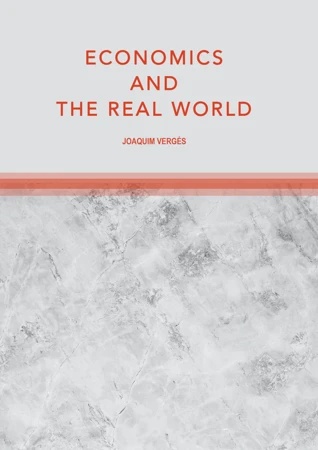Economics and the Real World

Blurb
Economics should schematically explain the key elements and main strands of this core part of social life: the actual workings of our economies. This book argues that orthodox, modern neoclassical economics does not fulfil this core task. Standard economics models do not address the real functioning of our market economies, but rather an imagined economy. While several books have presented a critique of the mainstream model of economics models, this book also seeks to develop an alternative model of the economy's workings, inferred from observational empirical evidence. The book will be of interest to economics students and researchers; to economists; and particularly to faculties and business schools teaching and researching non-traditional economics.
Book summary
Economics as a science – or viewed from the perspective of scientists in other fields. As a discipline or field of knowledge, Economics is clearly not an experimental science. The possibilities in this respect are extremely limited. When practised with scientific rigour it is, in essence, an observational science: we economists are confined to observing and analysing the workings of the economic system — of this or that market economy — and thus endeavouring to build a formal description of that conceptually and schematically. A description in which a significant part refers, if not properly to ‘laws’, to patterns observed in the behaviour of individuals as ‘economic agents’ —citizens, companies, governments, etc.—, as well as in the key magnitudes resulting from their activities and interrelations –production of goods, employment, prices, salaries, tax collection, etc. Ideally, in addition to specifying these socially significant magnitudes and patterns in the system, this necessarily schematic formal description should encompass a conceptual formulation of the most relevant causal relationships between them; such as, for example, between interest rate and level of the total demand of goods; or between statutory severance pay and employment level.

